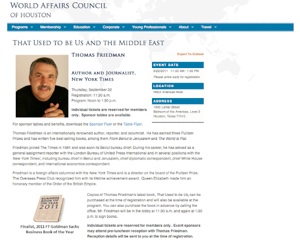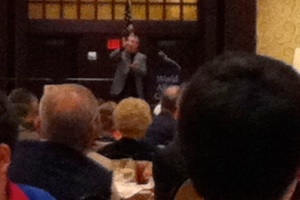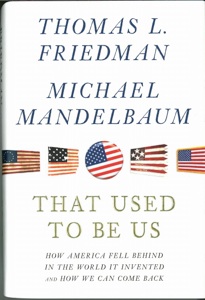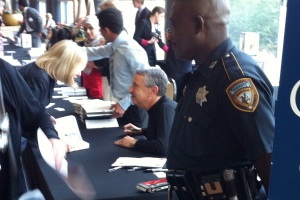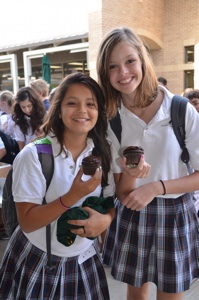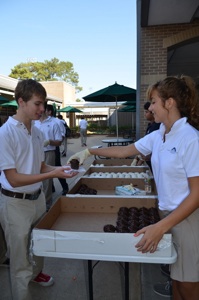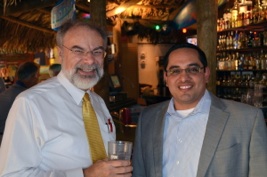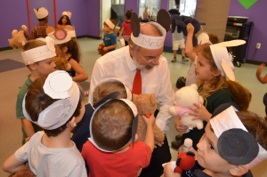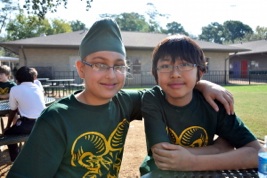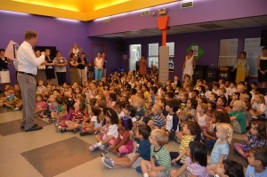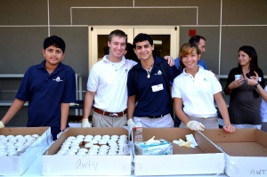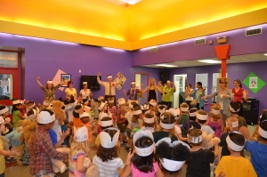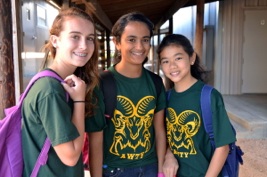Houston Blog
My blog from Houston, Texas. Updated most weeks, usually on Sundays.






I hope he realized the significance of what he was saying.
Thomas Friedman began his lecture by recalling that we often started many of his days in a conversation with others talking about the world - recent events, politics, economics, conflict, and so on - but the conversation that began with the world almost invariably ending up focussing on America.
He noted that after World War II, it was the US that had picked up the pieces of a fractured world (he didn’t mention the parallel role of the Soviet Union at the time), and then posed the question - if the US goes into decline, who will pick up the pieces in the future? China? India? Russia? Friedman’s position was unashamedly nationalistic; he would prefer it to be the US.
He then recalled an incident when Orson Wells went to a fortune teller to enquire about his future. “You don’t have a future” replied the fortune teller, “it’s all used up”. Friedman’s hypothesis is that if the US is to avoid that scenario, then it has a hard choice: it must either commit to a hard decade immediately or an even worse century to follow. In that context, he described himself as a ‘frustrated optimist’.
It was presumably this type of contrast that led President Barack Obama to state these words on November 3, 2010: “It makes no sense for China to have better rail systems than us, and Singapore having better airports than us. And we just learned that China now has the fastest supercomputer on Earth - that used to be us”. According to Friedman, a key reason for this situation is the nature of the national conversation - Americans don’t begin each day asking themselves what kind of world they want to live in.
My point is this - at Awty, we do!
Friedman identified three huge challenges: (1) dealing with the combined impact of globalization and information technology; (2) dealing with deficit; and (3) addressing the tension between supplying our energy needs without endangering the planet through climate change. He spent the rest of his lecture focussing on the first challenge.
Friedman suggests that these changes are having a profound impact on the global economy. He contends that it has led to a skills bias polarization in the global workforce, widening the income gap on an international scale. At one end, routine jobs that can be performed by machines are being eliminated, while at the top end, the demand for people to perform non-routine jobs that require creativity, problem-solving and reasoning is expanding rapidly. Friedman mentioned research among employers that indicated a strong desire to employ people who are capable of reinventing their jobs as they perform them - people who can devise new, innovative and better ways of performing their tasks.
If true, this all shouts for the need of an education in schools that develops highly transferable skills of creativity, critical thinking and reasoning, not the sponge-like absorption of facts that Friedman suggests characterizes the teaching in many US schools. He labels this situation “Average is Over”, and devotes an entire chapter to it in his book “That Used To Be Us”, emphasizing the need for schools to encourage ingenuity, creativity, inspiration and aiming for “the extra”.
In bringing his speech to a conclusion, I was delighted to hear Thomas Friedman highlight the singular need to invest in the type of education that brings about transformative change - developing creativity, building international understanding, encouraging innovation and insisting on excellence. He suggested that we should recruit teachers from countries with good track records of high educational achievement so they can help fast-track the improvement in the learning culture that is needed in American schools. He suggested improving the mechanisms to separate weak teachers, help them improve, and enable them to learn from exemplar mentors. He highlighted the need to esteem the value and significance of our teachers as the key shapers of the country’s future. He emphasized the importance of developing school cultures where students know they are coming each day to learn, not just to do tests. And he highlighted the need for schools to work in partnership with their parents and neighbors to build a coherent approach to implementing best practice in schools.
I seriously thought he was describing Awty!
Friedman on International Education
Sunday, 25 September 2011
The photos at the end of this week’s blog aim to represent just a few examples of the huge range of diverse activities that take place in any typical week at Awty.


